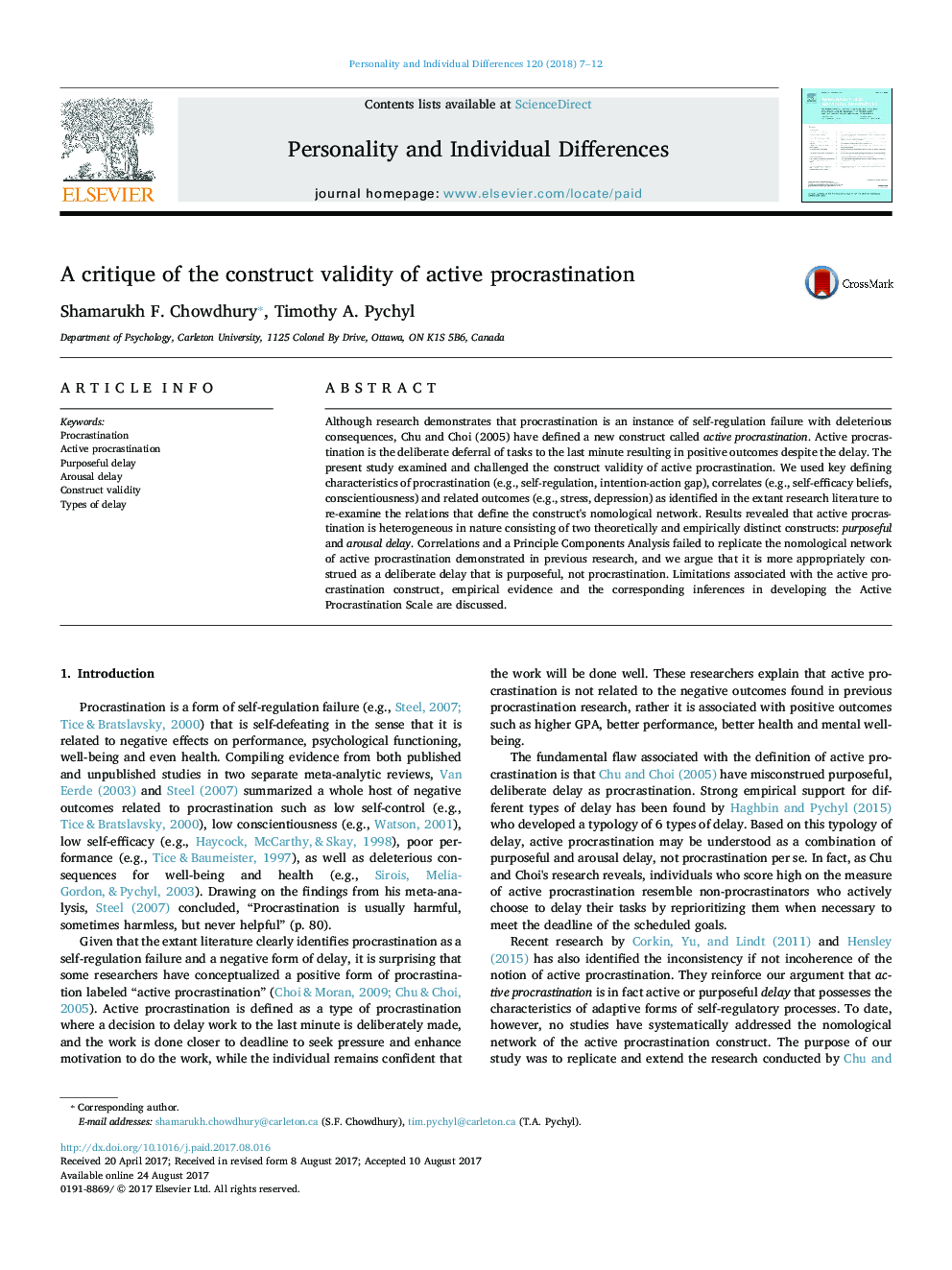| Article ID | Journal | Published Year | Pages | File Type |
|---|---|---|---|---|
| 5035510 | Personality and Individual Differences | 2018 | 6 Pages |
â¢Active procrastination is a heterogeneous construct.â¢Active procrastination consists of both purposeful and arousal delay.â¢Active procrastination does not include the defining features of procrastination.â¢Active procrastination is not a type of procrastination.â¢Nomological network of active procrastination does not hold true.
Although research demonstrates that procrastination is an instance of self-regulation failure with deleterious consequences, Chu and Choi (2005) have defined a new construct called active procrastination. Active procrastination is the deliberate deferral of tasks to the last minute resulting in positive outcomes despite the delay. The present study examined and challenged the construct validity of active procrastination. We used key defining characteristics of procrastination (e.g., self-regulation, intention-action gap), correlates (e.g., self-efficacy beliefs, conscientiousness) and related outcomes (e.g., stress, depression) as identified in the extant research literature to re-examine the relations that define the construct's nomological network. Results revealed that active procrastination is heterogeneous in nature consisting of two theoretically and empirically distinct constructs: purposeful and arousal delay. Correlations and a Principle Components Analysis failed to replicate the nomological network of active procrastination demonstrated in previous research, and we argue that it is more appropriately construed as a deliberate delay that is purposeful, not procrastination. Limitations associated with the active procrastination construct, empirical evidence and the corresponding inferences in developing the Active Procrastination Scale are discussed.
